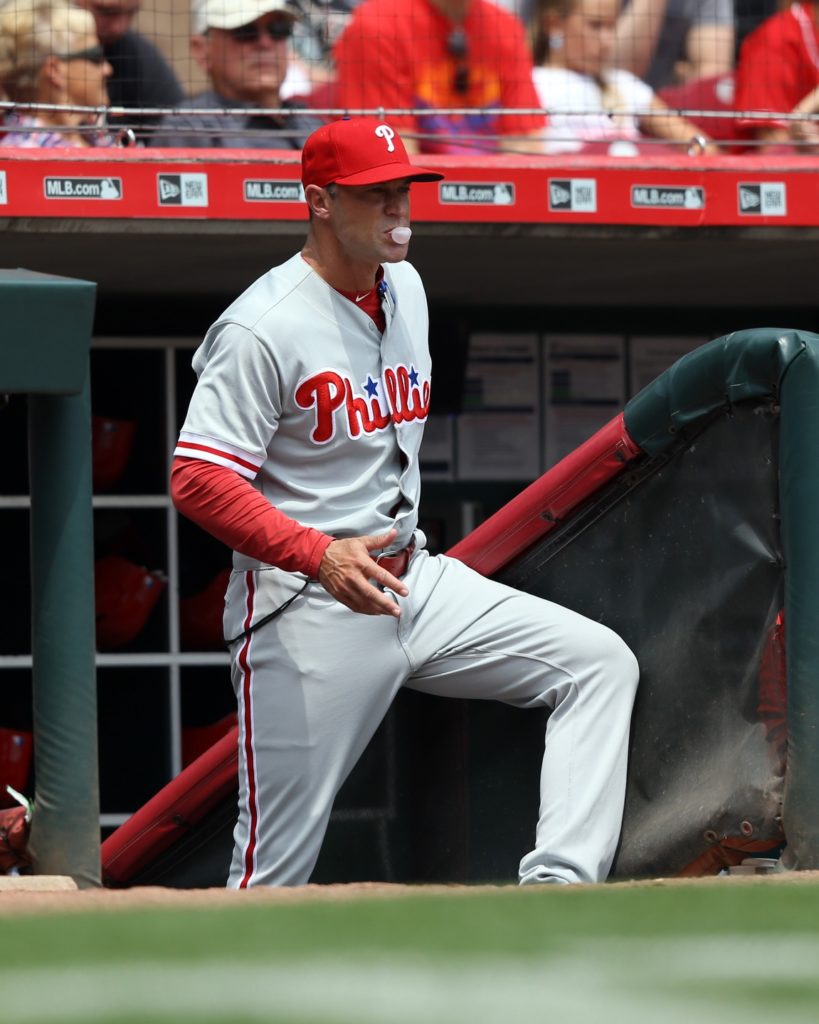Ad Disclosure
No, Gabe Kapler Isn’t Too Positive
By Bob Wankel
Published:

For whatever reason, the “Gabe Kapler is too positive” takes continue to be a thing.
Kapler was asked about his positive approach by Angelo Cataldi during his weekly appearance on 94WIP’s Morning Show earlier today. Here’s what he had to say:
“I get it, I get it. Angelo, I know that you and I know that are fans are very passionate. Part of the passion extends to wanting to be privy to everything that happens, including discipline. Unfortunately, that’s just not the way people work best, I think you’ll understand this. If you want to raise the bar for one of your colleagues from the station, you’re not gonna do it at a client dinner. And if you need to talk to your kids about disappointing report cards, you’re not gonna wait for the neighborhood block party to do so.”
…
“I, and our entire staff, are very comfortable having hard conversations with players when necessary, we never stop raising the bar for our men. However, it will always be done with respect and consideration and it will happen behind closed doors. My job is motivate players to perform well. I don’t believe that players perform well when publicly criticized. I don’t think it will help us win more baseball games and above all else, our fans expect me to do what I believe will help us win more baseball games.”
Amen.
I don’t love everything Kapler does, but I’m 100% with him on this issue, so a word for those who still don’t quite seem to get it:
No, he’s not insulting your intelligence, “old-school” Phillies fan. No, publicly criticizing, say, his centerfielder for missing a line drive that should’ve been caught with ease isn’t going to facilitate the elimination of such future mistakes. And no, standing in a room full of beat writers blasting his overachieving and scrappy young team when they make mistakes or struggle isn’t going to rectify the strikeouts or shoddy defense. If that offends you, sorry. You know what doesn’t offend me? First-place on August 2.
If you happen to disagree, I invite you to put your lunch pail down, take off your blue collar shirt, and have a seat because I need to point out two inconvenient truths:
1. It isn’t 1980 anymore. The condemnation of the modern athlete in a public forum, particularly during the social media era in which such comments have both a wider reach and more permanence, isn’t going to maximize player productivity moving forward. In fact, that approach would likely create discord and a disconnect between the players and coaching staff due to a perceived breach of trust. Such feelings can create a toxic environment that breeds losing. That’s how this works.
2. The Phillies are in first-place. They have been for nearly a month. They have a flawed and inconsistent lineup. Their bullpen performance has been volatile. They are limited defensively, and, I repeat, they are in first-place. If your stance is that the Phillies have left some wins on the table this season, that’s probably true, but I’d counter that the same is true of every team. Each brutal loss or short stretch of bad baseball has been met all season with an encouraging response by what has been an impressively resilient team.
Let’s take this a step further and put the opposing approach into practice. Kapler stands in front of a room full of reporters on Monday night after his team’s infuriating 2-1 loss at Fenway Park and says the following:
“Odubel Herrera was embarrassing tonight. To not slide in that third inning rundown is completely unacceptable, and I was absolutely disgusted watching it. And that liner to center in the sixth? That’s Little League bullshit and it cost us the game. Loser performance by him. Can’t have it.”
While factually correct, what’s the end game? The fans feel better? The media gets a quote and a ton of retweets? Will it help Herrera get a better read and take a better angle? Will it help him make the play? Does it prompt corrective action?
Hell no.
To be clear, that doesn’t mean Kapler shouldn’t be a hard ass sometimes. It doesn’t mean that he shouldn’t discipline players for a lack of focus, hustle, or execution behind closed doors. There is a time and place for that, but with great frequency, and in front of a camera is certainly not that place.
Bob Wankel covers the Phillies for Crossing Broad. He is also the Vice President of Sports Betting Content at SportRadar. On Twitter: @Bob_Wankel E-mail: b.wankel@sportradar.com